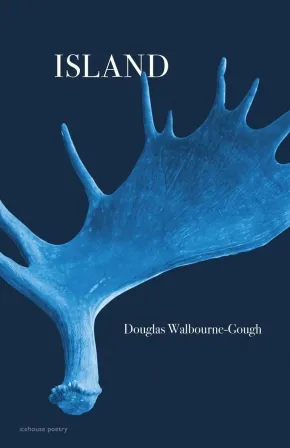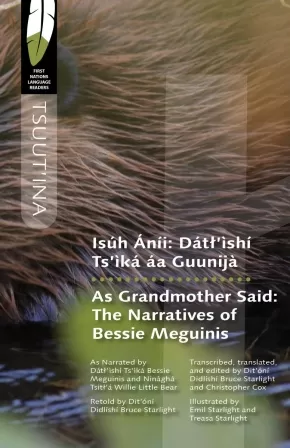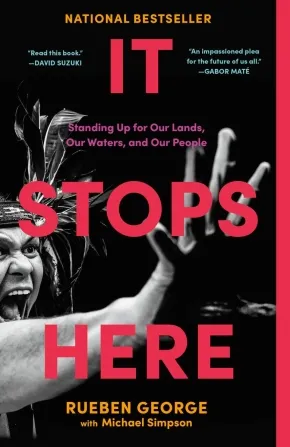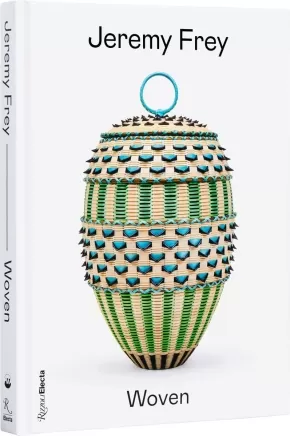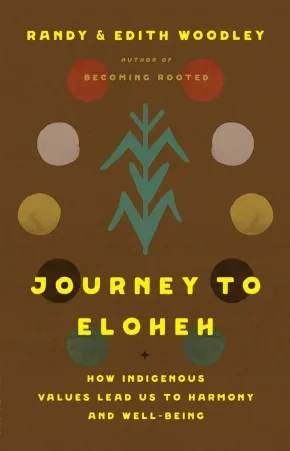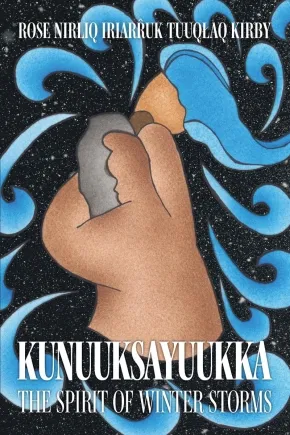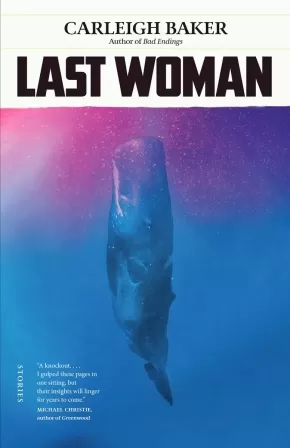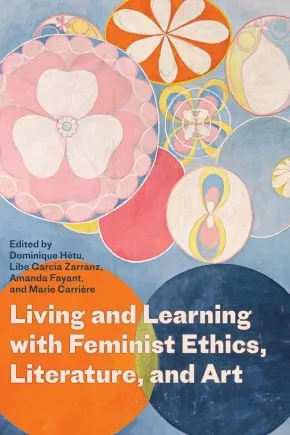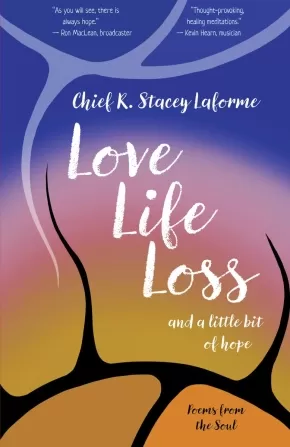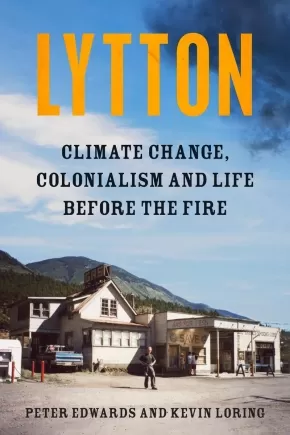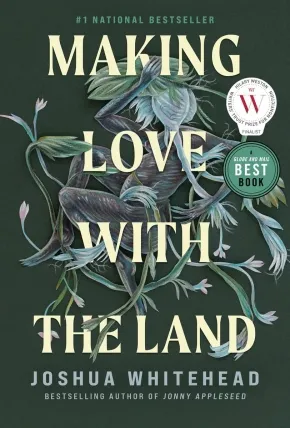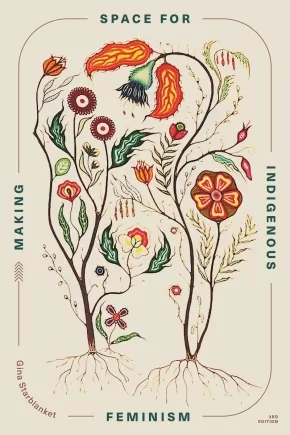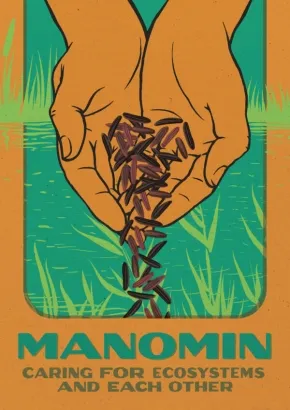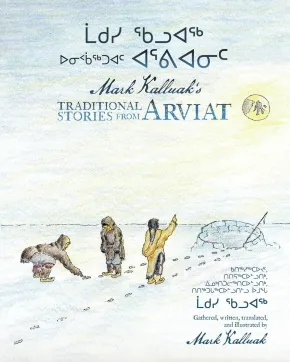
Indigenous Studies
136
-
150
of
1030 Results;
Sort By
Go To
of 69
Island
$22.00
Format:
Paperback
Text Content Territories:
Indigenous Canadian; First Nations; Mi'kmaq (Mi'gmaq);
Reading Level: N/A
ISBN / Barcode: 9781773103396
Synopsis:
Synopsis:
“Canada rejected our applications for enrolment in the Qalipu First Nation. Initially, I was relieved by the rejection. I’d watched my hometown divide itself — are you Mi′kmaq or settler? Mi′kmaq or not Mi′kmaq enough?”
Centred around the Newfoundland Mi'kmaq experience in the wake of the controversial Qalipu First Nation enrolment process, Island wades through the fracture and mistrust that continues to linger in many communities. In this new collection, Douglas Walbourne-Gough expands upon issues of identity and history that he introduced in Crow Gulch, offering a deeply personal and equally beautiful exploration of Mi'kmaw and Newfoundland identity.
Walbourne-Gough’s narrative poems trace the formation of identity, not through status documentation, but through its deeper roots in childhood memories, family, spirituality, and dreams. Throughout this collection, he approaches life in fragments — snuggling into his nan’s sealskin snowsuit, learning Mi'kmaq from an app, or the myriad of complex emotions that come with receiving a status card — and watches them transform into pieces of an everlasting puzzle. Island reckons with an often-ignored, yet persistent, effect of colonialism — fractured identities.
Additional Information
80 pages | 5.50" x 8.50" | Paperback
Isúh Áníi / As Grandmother Said: Dátl'ìshí Ts'ìká áa Guunijà / The Narratives of Bessie Meguinis
$24.95
Format:
Paperback
Text Content Territories:
Indigenous Canadian; First Nations; Dene; Tsuut’ina (Tsuu T'ina, Sarcee);
Grade Levels: 12; University/College;
ISBN / Barcode: 9780889779853
Synopsis:
Synopsis:
The first book published in Tsuut’ina—a critically endangered language—in over a century!
With fewer than 150 speakers, Tsuut’ina is a critically endangered language. Isúh Áníi / As Grandmother Said brings together nine traditional narratives and historical accounts in the Tsuut’ina language, originally narrated by Elders Dátł’ìshí Ts’ìká Bessie Meguinis (1883–1987) and Ninàghá Tsìtł’á Willie Little Bear (1912–1989). At once an act of language preservation and a learning resource, each story is retold in Tsuut’ina by Dit’óní Didlíshí Dr. Bruce Starlight and is presented with English translations and a Tsuut’ina-to-English glossary.
The narratives included in this collection cover considerable ground, ranging from the creation of the world in the caring hands of Xàlítsa-tsii and his animal helpers, to accounts of separation, migration, and cross-cultural contact that mark major turning points in Tsuut’ina history, and to important cultural and ceremonial items and practices that the Tsuut’ina Nation maintains to this day.
These stories will be of lasting value to Tsuut’ina language learners and teachers, and will share the legacy of Elders Bessie Meguinis and Willie Little Bear with generations of Tsuut’ina to come.
Educator & Series Information
This book is part of the First Nation Language Readers series. With a mix of traditional and new stories, each First Nations Language Reader introduces an Indigenous language and demonstrates how each language is used today.
Additional Information
186 pages | 5.50" x 8.50" | Paperback
It Stops Here: Standing Up for Our Lands, Our Waters, and Our People (PB)
$24.00
Format:
Paperback
Text Content Territories:
Indigenous Canadian; First Nations; Salish; Coast Salish; Tsleil-Waututh;
ISBN / Barcode: 9780735242821
Synopsis:
Synopsis:
A personal account of one man’s confrontation with colonization that illuminates the philosophy and values of a First Nation on the front lines of the fight against an extractive industry, colonial government, and threats to the life-giving Salish Sea.
It Stops Here is the profound story of the spiritual, cultural, and political resurgence of a nation taking action to reclaim their lands, waters, law, and food systems in the face of colonization. In deeply moving testimony, it recounts the intergenerational struggle of the Tsleil-Waututh Nation to overcome colonial harms and the powerful stance they have taken alongside allies and other Indigenous nations across Turtle Island against the development of the Trans Mountain Pipeline—a fossil fuel megaproject on their unceded territories.
In a firsthand account of the resurgence told by Rueben George, one of the most prominent leaders of the widespread opposition to the Trans Mountain Pipeline expansion, It Stops Here reveals extraordinary insights and revelations from someone who has devoted more than a decade of his life to fighting the project. Rueben shares stories about his family’s deep ancestral connections to their unceded lands and waters, which are today more commonly known as Vancouver, British Columbia and the Burrard Inlet. He discloses how, following the systematic cultural genocide enacted by the colonial state, key leaders of his community, such as his grandfather, Chief Dan George, always taught the younger generations to be proud of who they were and to remember the importance of their connection to the inlet.
Part memoir, part call to action, It Stops Here is a compelling appeal to prioritize the sacred over oil and extractive industries, while insisting that settler society honour Indigenous law and jurisdiction over unceded territories rather than exploiting lands and reducing them to their natural resources.
Additional Information
288 pages | 5.13" x 7.98" | 31 b+w images throughout | Paperback
Jeremy Frey: Woven
$67.50
Format:
Hardcover
Text Content Territories:
Indigenous American; Native American; Passamaquoddy (Peskotomuhkati);
ISBN / Barcode: 9780847899708
Synopsis:
Synopsis:
The only book on award-winning Indigenous basket maker Jeremy Frey, accompanying his first major traveling exhibition.
Frey (Passamaquoddy) is one of the most respected Indigenous basket makers working today. Descended from a long line of basket makers, his work is known for its intricate design and exquisite artistry, which reflect both traditional techniques and his own creative vision.
This catalogue considers his work from a variety of perspectives. Secord, whom Frey credits for guiding his career as the founder of Maine Indian Basketmakers Alliance, contributes a detailed biographical essay. DeSimone situates Frey’s work in the broader field of contemporary art, with a specific focus on the new video work he is making for the exhibition. Hoska focuses on Frey’s art in the broader context of Native basket and fiber arts. And Mize considers the ways in which his expanding practice registers ecological knowledge, time, and the impact of climate change.
Additional Information
160 pages | 8.85" x 11.91" | Hardcover
Journey to Eloheh: How Indigenous Values Lead Us to Harmony and Well-Being
$37.99
Format:
Hardcover
Text Content Territories:
Indigenous American; Native American; Shoshone; Eastern Shoshone Tribe; Cherokee; United Keetoowah Band ;
ISBN / Barcode: 9781506496979
Synopsis:
Synopsis:
Rooted in ten Indigenous values, this thoughtful, holistic book-written by Randy Woodley, a Cherokee descendant recognized by the Keetoowah Band, and Edith Woodley, an Eastern Shoshone tribal member-helps readers learn lifeways that lead to true wholeness, well-being, justice, and harmony.
The pursuit of happiness, as defined by settlers and enshrined in the American Dream, has brought us to the brink: emotionally, spiritually, socially, and as a species. We stand on a precipice, the future unknown. But Indigenous people carry forward the values that humans need to survive and thrive. In Journey to Eloheh, Randy and Edith Woodley help readers transform their worldviews and lifestyles by learning the ten values of the Harmony Way. These ten values, held in common across at least forty-five Indigenous tribes and nations, can lead us toward true well-being: harmony, respect, accountability, history, humor, authenticity, equality, friendship, generosity, and balance. By learning, converting to, and cultivating everyday practices of Eloheh--a Cherokee word meaning harmony and peace--we have a chance at building well-being and a sustainable culture.
In this riveting account of their own journeys toward deepening their indigeneity and embodying harmony, Edith, an activist-farmer, and Randy, a scholar, author, teacher, and wisdom-keeper, help readers learn the lifeways of the Harmony Way. The journey to Eloheh holds promise for all of us, Indigenous or not.
We know the Western worldview is at odds with a sustainable Earth, a just common life, and personal well-being. Together we can convert to another way of living--one that recognizes the Earth as sacred, sees all creation as related, and offers ancestral values as the way forward to a shared future.
Reviews
"Edith and Randy Woodley's passion and persistence to create spaces of community and care are inspiring. A blend of storytelling, theology, and guidance harvested directly through Indigenous wisdom, Journey to Eloheh reminds us to stay true to the path of kinship and belonging, and to never give up on justice and peacemaking in the world. I highly recommend this book for anyone who is searching for a way to be a better relative on this earth or to fight for a better reality for future generations. This book will help you get there." --Kaitlin B. Curtice, award-winning author of Native and Living Resistance
"Spiritual journey as autobiography: like a Navajo weaver, Journey to Eloheh skillfully connects Native American theology and personal experience into a way of life. If you are looking for your own path, Edith and Randy Woodley's story is a good place to begin." --Steven Charleston, author of Ladder to the Light, Spirit Wheel, and We Survived the End of the World
"There is so much we can all learn from the wisdom of Indigenous culture. In this book, Randy and Edith Woodley invite us to join them on a journey of learning a different way of living that leads to wholeness, abundance, and peace. They generously share their life experience and spiritual insights to show us a better path toward harmony with the whole of creation. I highly recommend it!" --Dr. Brenda Salter McNeil, author of Becoming Brave and Roadmap to Reconciliation 2.0
"A practical antidote to despair, hopelessness, and aimless consumption, this book offers a robust and healing path to well-being for all of us. The Woodleys are wise and trustworthy guides for restoration and embodied goodness within the community of creation." --Sarah Bessey, author of Field Notes for the Wilderness: Practices for an Evolving Faith
"Randy and Edith Woodley write with insight and wisdom from their years of experience. They have prophetic voices that draw attention to the needs of all of our relatives. Their voices rise out of difficult situations in which they have done more than survive; they are showing how to flourish in an ever-changing world." --Ray Aldred, director of the Indigenous Studies Program, Vancouver School of Theology
"For many years, I have considered Randy Woodley one of my teachers. His books, lectures, and personal conversations--together with his humble, yet bold, spirit as a teacher--have enriched and challenged me. His new book, co-written with his wise and eloquent wife, Edith, is a masterpiece, a book I would recommend to anyone and everyone. It beautifully combines the sharing of their life-story with the essence of their lifeway, articulated in ten powerful Indigenous values that are as deeply spiritual as they are deeply practical." --Brian McLaren, author, teacher, and activist
Educator Information
Keywords / Themes: Well-Being; the Harmony Way (Eloheh); Ten Eloheh Values; Indigenous Knowledge, Indigenous Values; Personal Growth.
Additional Information
264 pages | 5.75" x 8.75" | Hardcover
Kunuuksayuukka: The Spirit of Winter Storms
$25.95
Format:
Paperback
Text Content Territories:
Indigenous Canadian; Inuit; Inuvialuit (Mackenzie Inuit);
Reading Level: N/A
ISBN / Barcode: 9780981262710
Synopsis:
Synopsis:
Kunuuksayuukka: The Spirit of Winter Storms is a story of Inuvialuk (Western Arctic Inuk) Elder Rose Kirby's early life, beginning from her vibrant traditional life on the land, to being taken away on a "ship of tears" to residential school in Aktlarvik (Aklavik), before moving around different DEW Line sites following her father Joseph Saraana Thrasher's work. Known for her powerful memory and storytelling skills, Rose vividly recounts stories from her childhood and even infancy.
Kunuuksayuukka: The Spirit of Winter Storms honours the important lessons that Rose has learned from her Elders and family, through watching how they interacted with one another, as well as with the larger natural world. Rose uses Kunuuksayuukka-the spirit of winter storms-and its slow disappearance from her life, to describe her own transition from traditional, nomadic life on the land to moving into housing settlements created by tan'ngit (white people).
Through almost 300 pages, Rose's book weaves through candid stories of human relationships, loss, love and care for one another, humour, pain, strength, and resilience. Most importantly, it is a heartfelt tribute to Inuvialuit culture, language, history, life, and experiences-all through the eyes of an Inuvialuk who has learned to move with the changing world as she grew up. This book is a must-read for anyone who wants to learn about how Inuvialuit lived long ago.
Additional Information
6.00" x 9.00" | 25 b&w photographs | Paperback
Last Woman: Stories
$24.95
Format:
Paperback
Text Content Territories:
Indigenous Canadian;
Reading Level: N/A
ISBN / Barcode: 9780771004148
Synopsis:
Synopsis:
From one of the country’s most celebrated new writers, a blistering collection of short fiction that is bracingly relevant, playfully irreverent, and absolutely unforgettable.
There’s a hole in the ozone layer. Are teenage girls to blame?
Floods and wildfires, toxic culture, billionaires in outer space, or a purse-related disaster while on mushrooms—in today’s hellscape world, there’s no shortage of things to worry about. Last Woman, the new collection of short fiction by award-winning author Carleigh Baker, wants you to know that you’re not alone. In these 13 brilliant new stories, Baker and her perfectly-drawn characters are here for you—in fact, they’re just as worried and weirded-out as everyone else.
A woman’s dream of poetic solitude turns out to be a recipe for loneliness. A retiree is convinced that his silence is the only thing that will prevent a deadly sinkhole. An emerging academic wakes up and chooses institutional violence. A young woman finds sisterhood in a strange fertility ritual, and an enigmatic empath is on a cleanse. Baker’s characters are both wildly misguided and a product of the misguided times in which we live. Through them we see our world askew and skewered—and, perhaps, we can begin to see it anew.
Carleigh Baker’s signature style is irreverent, but her heart is true—these stories delve into fear for the future, intergenerational misunderstandings, and the complexities of belonging with sharp wit and boundless empathy. With equal parts compassion and critique, she brings her clear-eyed attention to bear on our world, and the results are hilarious, heartbreaking, and startling in their freshness.
Reviews
“Carleigh Baker’s Last Woman is a knockout. These fifteen stories are probing contemplations on technology, the climate crisis, childhood, adulthood, parenthood, dreams, identity, creativity, and those staggering moments when the uncanny burbles up through the cracks of everyday experience. I gulped these pages in one sitting, but their insights will linger for years to come.”—Michael Christie, author of Greenwood
“Carleigh Baker’s Last Woman is a satirical, energetic look at our messed-up world. The stories in this collection ask original, surprising what-if questions, exploring disasters small and large, personal and public, and the past, present, and future of this planet—and beyond. I’m so impressed with Baker’s ability to craft such a range of voices, by turns funny and vulnerable and exuberant and idiosyncratic. These stories are inventive, a little weird, and very, very cool.”—Shashi Bhat, author of The Most Precious Substance on Earth
Additional Information
208 pages | 5.18" x 8.00" | Paperback
Liturgy of Savage No. 82
$20.00
Format:
Paperback
Text Content Territories:
Indigenous Canadian; First Nations; Innu (Montagnais-Naskapi);
Reading Level: N/A
ISBN / Barcode: 9781773860664
Synopsis:
Synopsis:
Originally from the community of Ekuanitshit (Mingan) in the Lower North Shore region of Quebec, Cousineau-Mollen was adopted at a very young age by an urban family as part of what is now known as the Sixties Scoop. Although Cousineau-Mollen did not grow up in an Indigenous community, her adoptive family maintained contact with her biological family, ensuring she remained connected to her culture and identity. Having faced adversity and rejection during her studies at Laval University due to her Indian Status, she has since worked to build and support community initiatives, through Aboriginal student associations and involvement in the Wolf Pack Street Patrol, for the Indigenous homeless people of Montreal. In The Liturgy of Savage No. 82, Cousineau-Mollen reclaims, honours, and makes space for herself and the rights of Indigenous women. A powerful and emotional poetry collection, The Liturgy of Savage No. 82 explores the realities facing Indigenous women in Canada and the emotional impact of homelessness, intergenerational trauma and systemic racism, all through a feminist lens as she considers the implications of femininity and identity in relation to the unceded land of her people.
Reviews
“Cousineau-Mollen’s poetry embodies resilience, and how the impact of colonization has affected Indigenous peoples, and First Nation women in particular.”—Shannon Webb-Campbell, Muskrat Magazine on Bréviaire du matricule 082 (Éditions Hannenorak, 2019)
Additional Information
72 pages | 5.50" x 8.00" | Paperback
Living and Learning with Feminist Ethics, Literature, and Art
$39.99
Editors:
Format:
Paperback
Text Content Territories:
Indigenous Canadian;
Reading Level: N/A
ISBN / Barcode: 9781772127713
Synopsis:
Synopsis:
This transdisciplinary collection investigates relations of “living and learning with” as compelling forms of engagement and care between humans, nonhumans, and more-than-humans. Through academic and creative writings, contributors address the need for sustainable relationships between various feminist positions, focussing on Indigenous and Black knowledges, queer and trans artistic interventions, and anti-racist methodologies. They pursue crucial conversations on intersecting oppressions, intersubjectivities, voices, and positionalities. Rooted in feminist literary and artistic practices, the volume explores urgent ongoing transnational issues and will benefit scholars in literature, Indigenous studies, intercultural studies, and gender studies.
Contributors: Kim Anderson, Alexandre Baril, Sissel M. Bergh, Marie Carrière, Élise Couture-Grondin, Junie Désil, Amanda Fayant, Mylène Yannick Gamache, Libe García Zarranz, Dominique Hétu, Larissa Lai, Amina Lalor, Sheri Longboat, Brittany Luby, Stephanie Oliver, Anne Quéma, Veronika Schuchter, Erin Soros, Erin Wunker
Reviews
"This groundbreaking collection redefines feminist poetics, offering timely provocations and sophisticated insights. Engaging with critical university studies, Indigenous studies, trans studies, disability studies, and more, it explores ethical encounters and practices of care and reciprocity not just among humans, but beyond the human as well. The diverse yet thematically cohesive contributions highlight poetry’s role in addressing urgent cultural and political issues." - Sarah Dowling, University of Toronto
"Rarely has such an assortment of talented theorists and literary critics been collected to discuss feminist ethics. With essays arising from vigorous scholarly and artistic practices, the work will engage feminists, literary scholars, poets, activists, and scholars of gender and critical race theory." -Deanna Reder, Simon Fraser University
Additional Information
294 pages | 6.00" x 9.00" | Paperback
Love Life Loss and a little bit of hope: Poems from the Soul
$24.95
Format:
Paperback
Text Content Territories:
Indigenous Canadian; First Nations; Anishinaabeg; Ojibway; Mississaugas;
Reading Level: N/A
ISBN / Barcode: 9781990735431
Synopsis:
Synopsis:
“We should not have to change to fit into society the world should adapt to embrace our uniqueness.” -- Chief Stacey Laforme
Chief Stacey Laforme breathes life into every poem and story he shares, drawing from his own experiences. Rich with the essence of his soul, the poems in this book capture the moments and emotions that have shaped him. His desire is for readers to not just read, but to truly feel the humour and pain intertwined in these poems. Much like in Living in the Tall Grass, this latest poetry collection invites non-Indigenous people to see through the eyes of Indigenous people with topics of peace and humanity, as well as grief, trauma ... and hope.
Reviews
"Thought provoking, healing meditations. Giima Laforme writes from his perspective as a son, father, husband, community leader, but most of all as a human being. He invites us to walk with him, and to see the world as he sees it. Not only is this an invitation we should accept, but it is also a beautiful and generous gift." — Kevin Hearn, musician
"Chief Stacey Laforme writes with the motive of love, and poetry is his instrument. When considering the unmarked graves at residential schools, Chief Laforme’s poem ‘Debwewin—Truth’ freezes you with the line, “She felt the shovels enter her body.” But as you will see, there is always hope. Chief has both the scalpel and the suture. He cuts, then he cures." —Ron MacLean, broadcaster
Additional Information
160 pages | 8.50" x 5.50" | Paperback | 3 b&w illustrations
Lytton: Climate Change, Colonialism and Life Before the Fire
$36.00
Format:
Hardcover
Text Content Territories:
Indigenous Canadian; First Nations; Salish; Interior Salish; Nlaka'pamux (Thompson);
Reading Level: N/A
ISBN / Barcode: 9781039006157
Synopsis:
Synopsis:
From bestselling true-crime author Peter Edwards and Governor General's Award-winning playwright Kevin Loring, two sons of Lytton, BC, the town that burned to the ground in 2021, comes a meditation on hometown―when hometown is gone.
Before it made global headlines as the small town that burned down during a record-breaking heat wave in June 2021, while briefly the hottest place on Earth, Lytton, British Columbia, had a curious past. Named for the author of the infamous line, “It was a dark and stormy night,” Lytton was also where Peter Edwards, organized-crime journalist and author of seventeen non-fiction books, spent his childhood. Although only about 500 people lived in Lytton, Peter liked to joke that he was only the second-best writer to come from his tiny hometown. His grade-school classmate’s nephew Kevin Loring, Nlaka’pamux from Lytton First Nation, had grown up to be a Governor General's Award-winning playwright.
The Nlaka’pamux called Lytton “The Centre of the World,” a view Buddhists would share in the late twentieth century, as they set up a temple just outside town. In modern times, many outsiders would seek shelter there, often people who just didn’t fit anywhere else and were hoping for a little anonymity in the mountains. You’ll meet a whole cast of them in this book.
A gold rush in 1858 saw conflict with a wave of Californians come to a head with the Canyon War at the junction of the mighty Fraser and Thompson rivers, one that would have changed the map of what was soon to become Canada had the locals lost. The Nlaka’pamux lost over thirty lives in that conflict, as did the American gold seekers. A century later, Lytton hadn’t changed much. It was always a place where the troubles of the world seemed to land, even if very few people knew where it was.
This book is the story of Lytton, told from a shared perspective, of an Indigenous playwright and the journalist son of a settler doctor who quietly but sternly pushed back against the divisions that existed between populations (Dr. Edwards gladly took a lot of salmon as payment for his services back in the 1960s). Portrayed with all the warmth, humour and sincerity of small-town life, the colourful little town that burned to the ground could be every town’s warning if we don’t take seriously what this unique place has to teach us.
Additional Information
376 pages | 6.00" x 9.00" | Hardcover
Making Love with the Land (PB)
$22.95
Format:
Paperback
Text Content Territories:
Indigenous Canadian; First Nations; Anishinaabeg; Oji-Cree;
Reading Level: N/A
ISBN / Barcode: 9780735278868
Synopsis:
Synopsis:
The boundary- and genre-bending non-fiction collection from the Giller-longlisted, GG-shortlisted and Canada Reads– winning author of Jonny Appleseed.
“The land and its elements are my aunties calling me home, into that centre point which is a nowhere, by which I mean a place that English has no words for, is an everywhere, is a bingo hall, is a fourth plane, is an ocean.”
Making Love with the Land is a startling, challenging, uncompromising look at what it means to live as an Indigenous person “in the rupture” between identities. In these ten unique, heart-piercing non-fiction pieces, award-winning writer Joshua Whitehead illuminates the complex moment we’re living through now, in which Indigenous and non-Indigenous peoples are navigating new and old ideas about “the land.” He asks: What is our relationship and responsibility towards it? And how has the land shaped ideas, histories, words, our very bodies?
Intellectually thrilling and emotionally captivating, this book is a love song for the world—and for the library of stories to be found where body meets land, waiting to be unearthed and summoned into word.
Reviews
"[Making Love With the Land] defies categorization . . . mov[ing] between genres and languages in a series of essays that open up a whole new window on the meaning of Canadian literature.” —Maclean’s
“Joshua Whitehead is one of those rare writers: he can turn his hand to any form and make it his own. . . . Making Love with the Land is a series of essays with a fluidity, as you might expect from Whitehead, between form and subject.” —Toronto Star
“Defiantly artful . . . alert to so much of the beauty and theterror of the world . . . While reading, I was entirely overcomewith gratitude . . . A truly dazzling feat of heart, analysis,and sentence-making.” —Billy-Ray Belcourt, author of A History of My Brief Body
“In this essay collection, Joshua Whitehead pushes at the possibilities of form, and the results are consistently a mix of the revelatory and the sublime. A chiaroscuro of self-questioning directed inward as a way to go outward—affectionate, resolute, playful, and wise. Brilliant lessons learned are on offer here, but more as an invitation to re-experience what you might not know you know.” —Alexander Chee, author of How to Write an Autobiographical Novel: Essays
“In his latest “wonderwork,” Whitehead continues his signature and significant mission to undo colonial notions of genre, pushing the boundaries of memoir and cultural commentary into a wholly new, otherworldly terrain. Here, he makes love with body, kin, queerness, and music, demonstrating how making love isn’t just an act of pleasure, but also one of grief, pain and sometimes even solitude. A voice to listen to, learn from, cherish.” —Vivek Shraya, Author of People Change and I’m Afraid of Men
Additional Information
240 pages | 5.19" x 7.98" | Paperback
Making Space for Indigenous Feminism - 3rd Edition
$40.00
Format:
Paperback
Text Content Territories:
Indigenous Canadian;
Grade Levels: 12; University/College;
ISBN / Barcode: 9781773635507
Synopsis:
Synopsis:
The third edition of this iconic collection features Indigenous feminist voices from across generations and locations, including many exciting new contributors.
The third edition of the iconic collection Making Space for Indigenous Feminism features feminist, queer and two-spirit voices from across generations and locations.
Feminism has much to offer Indigenous women, and all Indigenous Peoples, in their struggles against oppression. Indigenous feminists in the first edition fought for feminism to be considered a valid and essential intellectual and activist position. The second edition animated Indigenous feminisms through real-world applications. This third edition, curated by award-wining scholar Gina Starblanket, reflects and celebrates Indigenous feminism’s intergenerational longevity through the changing landscape of anti-colonial struggle and theory. Diverse contributors examine Indigenous feminism’s ongoing relevance to contemporary contexts and debates, including queer and two-spirit approaches to decolonization, gendered and sexualized violence, storytelling and narrative, digital and land-based presence, Black and Indigenous relationalities and more. This book bridges generations of powerful Indigenous feminist thinking to demonstrate the movement’s cruciality for today.
Reviews
“This collection is all feast, no fluff. It covers foundational elements of Indigenous feminism with depth and breadth and engages issues of national and international importance with considerable insight. Due to its readability and smart use of theory, this book is eminently teachable. I haven't highlighted this much in a long time.”— Margaret Robinson, Canada Research Chair in Reconciliation, Gender, and Identity
“This volume offers a view of the development and expansion of Indigenous feminisms as theory and praxis, reaffirming the validity of our respective Indigenous epistemologies to guide us into the future.”— Jennifer Nez Denetdale (Diné), University of New Mexico
“Multiplying are the calls for transformative healing issued by Indigenous feminism which is, at its core, about Indigenous sovereignty, solidarity, and liberatory justice for all. The diverse and incisive essays in Making Space for Indigenous Feminism (3rd ed) expose ongoing cis-heteropatriarchal settler colonialism, anti-Indigenous racism, and the erasure of gender and sexual diversity (including by Indigenous people ourselves), and their impacts upon minds, bodies, lived experiences, and relationships. Resistance and hope abound in the re-centring of (queer) Indigenous feminist futurisms: world-building that honours the self-determination of Indigenous women, girls, Two-Spirit, and trans folks, and promotes wellbeing for all of Creation.”— Chantal Fiola, author and associate professor, University of Manitoba
“This third edition continues to fulfill the promise of the title to make space for feminist interventions in Canadian Indigenous studies. Each author is committed to relational ethics and transformative praxis in addressing the most pressing issues that create epistemic and material injustices. From the heart rendering an intimate state-of-the-field assessment from pillars in the field, the politics of gender, policy, and violence manifested in Canada currently, to its latter chapters that open up new spaces by continuing to press for just Indigenous futures, of which decentering binaries of gender and sexuality is necessary, we see the importance of Indigenous feminist theorizing and praxis. Confronting gendered violence, heterosexism, disciplinary regimes, and colonialism with honesty and truth telling, Making Space generously offers us new paths to materialize a decolonial world.”— Mishuana Goeman, author of Mark My Words and Settler Aesthetics: Visualizing the Spectacle of Originary Moments in The New World
“Making Space for Indigenous Feminism provides us with powerful voices emerging from and incorporating past, present, and future. Each chapter continues to make space for the power of Indigenous feminisms, as women, femme, Queer, LGBTQS+ and Mad think together in a powerful analysis of our now. This latest edition of a classic, newly edited by Gina Starblanket, includes Elders and youth and brings us back to why Indigenous feminisms are the embodied, lived and felt knowledges that will inform our struggles going forward.”— Dian Million, University of Washington, American IndianStudies
Educator Information
Table of Contents
Extending Our Accounts of Indigenous Feminism—Joyce Green and Gina Starblanket
Section I: Home | Identity | Legacies
- Always Coming Home: Indigenous Identity, Indigenous Feminism, Scholarship and Life—Joyce Green
- Why Am I a Feminist?—Emma LaRocque
- Settler Colonialism in Canada: Making “Indian” Women Disappear—Mary Eberts, Shelagh Day, Sharon McIvor
Section II: Institutions | Representation | Resistance
- Red Ticket Women: Revisiting the Political Contributions of the Indian Rights for Indian Women’s Movement—Gina Starblanket
- Perpetual State of Violence: An Indigenous Feminist Anti-Oppression Inquiry into Missing and Murdered Indigenous Women and Girls—Robyn Bourgeois
- Gender Reveals that Matter: Cis-Heteropatriarchy, Settler Colonialism, and Child Welfare—Megan Scribe
Section III: Land | Relationality | Love
- Towards an Anti-Colonial Feminist Care Ethic—Eva Jewell
- Our Movements Need some Love as Well: Indigenous Land Defense and Relationality—Isabel Altamirano-Jimenez
- Mana Wahine and Mothering at the Loʻi: A Two-Spirit/Queer Analysis—Hōkūlani K. Aikau
Section IV: Decoloniality | Movement | Futurities
- Decolonization is a Queer Desire: Poetics, Politics, Negativity—Billy-Ray Belcourt
- Mad Indigenous Womanhood and the Psycho-Politics of Settler Colonialism—Cara Peacock
- On Black and Indigenous Relationality: A Conversation—Gina Starblanket, Robyn Maynard, Leanne Betasamosake Simpson
- Decolonization is Also Metaphorical: Indigenous Feminist and Queer-Two-Spirit Storywork Matters—Kelly Aguirre
Additional Information
320 pages | 6.00" x 9.00" | Paperback
Manomin: Caring for Ecosystems and Each Other
$29.95
Editors:
Format:
Paperback
Text Content Territories:
Indigenous Canadian; First Nations; Anishinaabeg;
Reading Level: N/A
ISBN / Barcode: 9781772840902
Synopsis:
Synopsis:
Reclaiming crops and culture on Turtle Island
Manomin, more commonly known by its English misnomer "wild rice," is the only cereal grain native to Turtle Island (North America). Long central to Indigenous societies and diets, this complex carbohydrate is seen by the Anishinaabeg as a gift from Creator, a "spirit berry" that has allowed the Nation to flourish for generations. Manomin: Caring for Ecosystems and Each Other offers a community-engaged analysis of the under-studied grain, weaving together the voices of scholars, chefs, harvesters, engineers, poets, and artists to share the plant's many lessons about the living relationships between all forms of creation.
Grounded in Indigenous methodologies and rendered in full colour, Manomin reveals and examines our interconnectedness through a variety of disciplines-history, food studies, ethnobotany, ecology-and forms of expression, including recipes, stories, and photos. A powerful contribution to conversations on Indigenous food security and food sovereignty, the collection explores historic uses of Manomin, contemporary challenges to Indigenous aquaculture, and future possibilities for restoring the sacred crop as a staple.
In our time of ecological crisis, Manomin teaches us how to live well in the world, sustaining our relations with each other, our food, and our waterways.
Reviews
"This book is absolutely amazing and one of the most original collections that I have read in many years. Intended for everyone who inhabits Turtle Island-Indigenous and settler alike-Manomin encourages readers to develop deeper relationships and understandings by listening to Elders and the land. I believe Manomin will transform Indigenous scholarship." — Michael Dockry, University of Minnesota
"Manomin teaches us much; how to observe, the need for biodiversity, and the understanding that there will be rice somewhere else, on different years, based on water levels. Manomin has provided food during the harshest of times. We were told that we should care for our water and there would be rice. There are lakes where Manomin has been drowned by the state and provincial authorities, raising water levels for recreational boats. For many years the Mille Lacs band of Anishinaabe tried to get the water levels corrected for the rice to flourish on Onamia and Omeme Lakes. At one of those lakes, the water levels went down in a drought, and the Manomin returned, seventeen years later. At another lake it was fifty years later. The Manomin returned when the conditions were right. That reminds us, like this book, of the resilience of seeds, the resilience of life, and our agreement to care for all. This book is a blessing of teachings and acknowledgment for the great gift of Manomin." — Winona LaDuke, To Be a Water Protector: Rise of the Wiindigoo Slayers
Educator Information
Topics: Environmental Studies, History, Indigenous Studies, Decolonization, Agriculture and Food, Ethnobotany, History, Food Studies.
Table of Contents
List of Illustrations
A Note on Language by Brittany Luby and Margaret Lehman
Introduction by Brittany Luby, Samantha Mehltretter, and Margaret Lehman with Niisaachewan Anishinaabe Nation
Ch.1 Manitou Gitaggan, the Great Spirit’s Garden by Kezhii’aanakwat Ron Kelly, Giizhiigokwe Sandra Indian, Patees Dorothy Copenace, and Kathi Avery Kinew
Ch.2 Migration by Edward Benton-Banai
Ch.3 Seeds and Soils by Victoria Jackson
Manomin and Bergamot by Sean Sherman
Ch.4 Manomin as Teacher by Brittany Luby with Niisaachewan Anishinaabe Nation
Images from Anishinaabe-Aki: Harvest
Ch.5 Relational Vocabularies by Joseph Pitawanakwat
Manomin, Berries, and Love by Michelle Johnson-Jennings, PhD
Ch.6 Environmental Change, Environmental Care by Samantha Mehltretter and Andrea Bradford with Niisaachewan Anishinaabe Nation
Images from Anishinaabe-Aki: The Seasons by Andrea Bradford
Ch.7 Disconnection by Hannah Tait Neufeld
Manomin and Mushrooms by Shane Chartrand
Ch.8 Treaty and Mushkiki by Jana-Rae Yerxa and Pikanagegaabo, William Yerxa
Ch.9 Promise by Kristi Leora Gansworth
Epilogue by Andrea Bradford and Brittany Luby
Appendix 1: A Recipe for Corn Soup
Appendix 2: A Note on Indigenous Language Rights
Glossary by Jane Mariotti
Contributors
Notes
Selected Bibliography
Additional Information
240 pages | 6.00" x 8.50" | 40 colour illustrations, 2 maps, index, bibliography | Paperback
Mark Kalluak's Traditional Stories from Arviat
$39.95
Artists:
Format:
Hardcover
Text Content Territories:
Indigenous Canadian; Inuit;
Reading Level: N/A
ISBN / Barcode: 9781772275117
Synopsis:
Synopsis:
Mark Kalluak was a respected community leader and Inuktitut specialist who was passionate about sharing Inuit culture. This book is a compilation of Kalluak’s works on traditional Inuit stories and beliefs from his home community of Arviat, Nunavut. These tales and cultural outlooks were thoughtfully collected, written in Inuktitut and English, and illustrated by Kalluak. From the origins of darkness and light, to cautionary tales of how to treat others, to explanations of taboos, this book is a noteworthy collection of traditional Inuit stories and beliefs.
Additional Information
216 pages | 8.00" x 10.00" | Hardcover
Sort By
Go To
of 69

